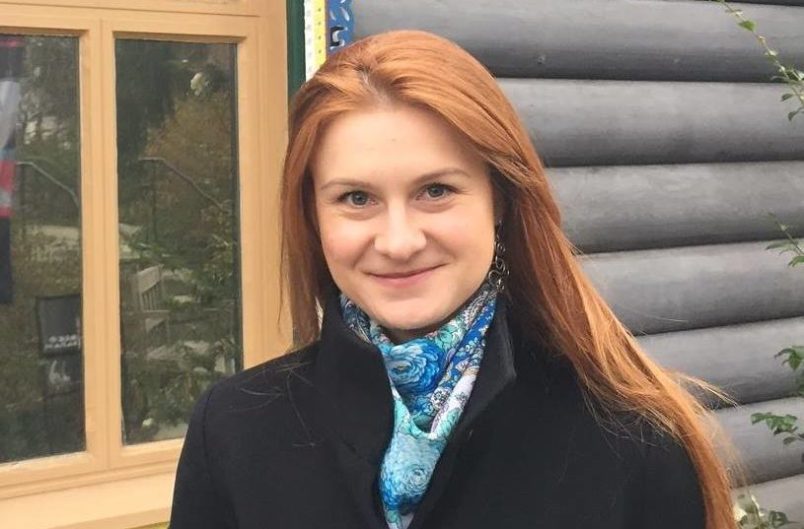In the latest attempt by Maria Butina to kick up legal dust at prosecutors, the accused Russian agent on Thursday filed a rambling motion to throw out the charges against her, calling them “unconstitutional” and arguing that the statute used to prosecute her is over-broad.
“But if fantasizing about a future career in diplomacy and jabbering about personal events and peacebuilding aspirations with others like a friend and mentor who happens to be an officer from some foreign government agency (whether
or not that officer is then acting in an official capacity) makes one a foreign agent, then scores of people are unknowingly violating this statute,” attorneys for Butina wrote in the filing.
The 30-year old Russian national was charged in July with failing to register as a foreign agent.
Butina’s attorney spent the bulk of the motion to dismiss throwing supposedly analogous cases of others “acting as a foreign agent” at the judge.
“An unregistered, American college student dating the son or daughter of a foreign ambassador to the United States violates the statute by attending a public rally to protest against a U.S. government action (e.g., the separation of families at the border) if directed and invited by the ambassador,” the filing reads.
Another example that Butina’s attorneys use is that of an “unregistered, lonely grandson from an unpopular, provincial country.” In that case, the boy’s grandmother — a foreign official — “thoughtfully directs him to go to prayer groups and same-interest meetups,” thereby rendering the grandson a “foreign agent,” per Butina’s attorneys.
The memo throws several other similar examples at the judge, with defense attorneys claiming that there are “endless factual examples of individuals engaging in completely legal conduct who are nonetheless at risk of prosecution.”
The Russian government has called Butina’s arrest an example of “politically motivated prosecution.” Kremlin spokespeople have spun the case as an example of the “russophobia” that has supposedly enveloped Washington.






